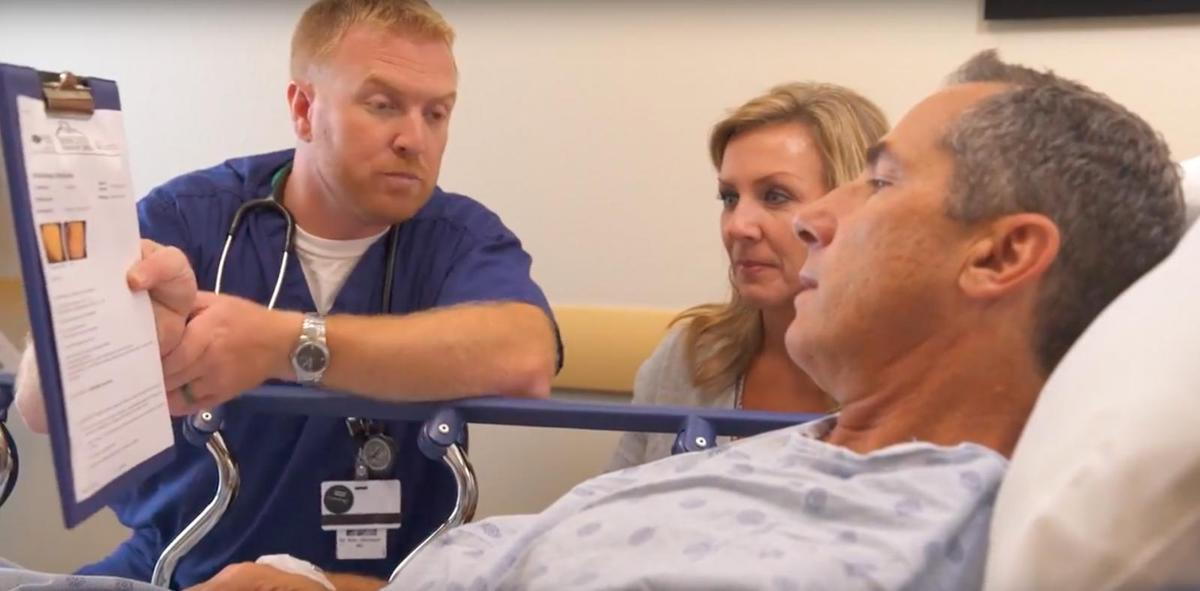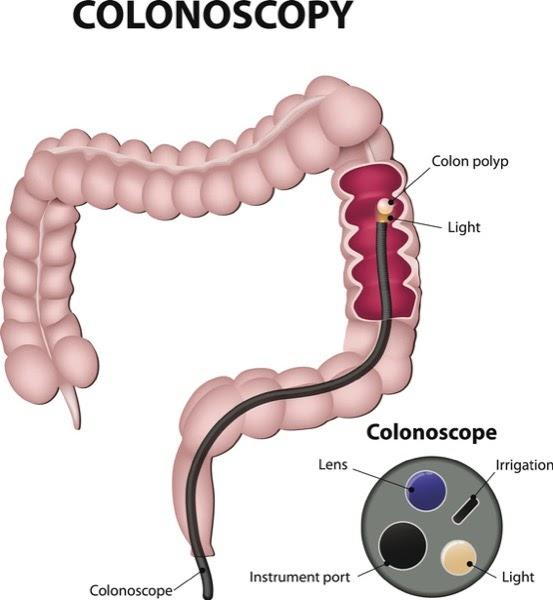
Cancer Screening: The Choice is Yours
When it comes to colon cancer, getting screened is an essential part of your wellness plan. The key is to do something and you have screening options.
Average risk screening colonoscopy starts at age 50 (or 45 by some sources) and is recommended every 10 years until the age of 75. If polyps are found on colonoscopy, the interval of recommended colonoscopy may be shortened.
If colorectal cancer runs in your family or you have certain underlying conditions, you may need to get tested earlier. Talk to your doctor about what is best for you.
Know your options
Colonoscopy is the most common test to detect colon cancer, as well as the most reliable. Other tests include stool DNA tests, flexible sigmoidoscopy, double barium enema, and CT colonography. Based on your personal health history, your doctor can recommend the right test for you.
A colonoscopy is the only colorectal cancer screening option that both detects and prevents colorectal cancer. As a routine, preventative screening, colonoscopies are covered by most insurance plans which often means little or no out-of-pocket cost to you!
Prior to a procedure, you complete a bowel preparation process that cleans out the colon to enable your doctor to see the lining of your rectum and colon. During a colonoscopy, your doctor gently inserts a colonoscope, which contains a tiny video camera at its tip, through the rectum into your large intestine. Your doctor examines the lining along the entire length of your large intestine.
If your doctor sees abnormal growths of tissue called polyps, tiny instruments are inserted through the colonoscope to remove them. The tissue samples are sent to a pathologist to evaluate whether they are benign, precancerous, or malignant. Screening colonoscopy is recommended every 10 years between 45 and 75 years of age may be more frequently based on your findings and risk factors. If you’d like to learn more about what to expect before a colonoscopy, check out our video here.
Alternative Screenings
Occasionally, patients have reservations about getting a colonoscopy, or there may be reasons to consider alternative screening methods. At the advice of your doctor, you might also be able to consider one of these alternatives:
2. Fecal Immunochemical Test (FIT): FIT detects hidden blood in the stool, which can indicate the presence of cancer. When a FIT test is positive a colonoscopy is usually recommended. FIT tests are recommended annually for average-risk patients, age of 50 and over, with no symptoms.
3. Stool DNA Tests: The stool DNA test looks for abnormal DNA associated with colon cancer or colon polyps. The test also detects hidden blood in the stool, which can indicate the presence of cancer. If a stool DNA test is positive a colonoscopy is usually recommended. The stool DNA test is recommended for average-risk patients with no symptoms and is usually recommended every 3-5 years.
The stool DNA test is not recommended for higher-risk patients with a personal history of colon polyps or cancer, or who have inflammatory bowel conditions, diarrhea, blood in their urine or stool, bleeding hemorrhoids, rectal bleeding, or are menstruating. It is important to note that colonoscopy performed due to a positive stool DNA test is often classified as a diagnostic service by most payers.
4. CT Colonography (also referred to as virtual colonoscopy): A small tube is placed in the rectum and air is pumped into the colon to inflate the bowel. A special computer program creates both 2-dimensional x-ray pictures and a 3-dimensional view of the inside of the colon and rectum, which lets the doctor look for polyps or cancer. If the test is positive a colonoscopy is usually recommended to remove the growths. Preparation is the same as a colonoscopy. This test may be recommended when the completion of a colonoscopy is not possible. It is usually recommended every 5 years.
5. Flexible Sigmoidoscopy: Similar to colonoscopy, this test uses a thin flexible tube with a camera to examine the rectum and left side of the colon. Whereas colonoscopy examines the entire length of the colon, sigmoidoscopy is a partial exam. The preparation is the same as a colonoscopy. When considering colon cancer screening options, flexible sigmoidoscopy is not as complete as a colonoscopy and therefore is not widely recommended for screening purposes. It’s typically repeated every 5 years.
6. Double Barium Enema: This is also called a lower GI tract radiography, in which a barium solution and air are introduced into the colon, and a series of x-rays are taken of the entire colon and rectum. Double Barium Enema is often performed in combination with flexible sigmoidoscopy. If either of these tests is positive a colonoscopy is usually recommended.
Early detection of colorectal cancer is crucial and potentially lifesaving. The most important step you can take is to get screened. GI Associates is proud to offer options to our patients so that together we can determine the best plan for you.
Preventative screenings like colonoscopies are typically covered by insurance and so don't have any costs to you. If you have any concerns about coverage or payment for colon cancer screening services, our GI Associates Financial Counselor will work with you to help understand your benefits.

